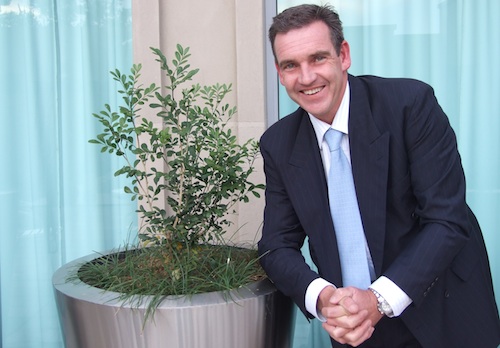
JSE-listed technology group Altech is considering ramping up its investments in telecommunications infrastructure in SA and West Africa, effectively replicating its investments in East Africa.
Altech CEO Craig Venter, pictured, is cautious about how much he says about the group’s strategic plans in this regard. However, speaking to TechCentral after the release of the group’s interim results on Tuesday, he hinted that Altech could accelerate its investments in infrastructure elsewhere on the continent.
Altech’s investments in East Africa, where it is the principal shareholder in Kenya Data Networks, have performed exceptionally well: 18% of the group’s operating profit (5% of turnover) in the six months to August 2009 was generated from the region.
Venter says Altech will pump at least US$20m/year over the next several years into capital expenditure in East Africa — mainly deploying new fibre networks. It is building backhaul fibre networks in and between Kenya, Tanzania, Rwanda, Uganda and the Democratic Republic of Congo.
Asked whether Altech will replicate its East African investments elsewhere on the continent, Venter says: “We’ll definitely look at replicating that formula, not only in the West African region but also in SA.”
But any plans to make big investments in infrastructure in SA are at least a year away, Venter says. For now, the focus is on East Africa.
It’s ironic that Altech isn’t building a national network in SA. It was Altech that challenged government’s telecoms policies in the high court and in the process succeeded in opening the SA telecoms market to much greater competition.
Since the high court ruling, Altech has acquired Technology Concepts, an Internet service provider. Though small, Technology Concepts is growing quickly and will soon become a so-called “tier-one” service provider with access to international bandwidth via the Seacom marine cable.
Altech will spend $69m over the next five years on Seacom bandwidth. It has bought 5Gbit/s on the cable system, mainly to supply its East African operations, but also to provide international connectivity in SA.
“We see a lot of opportunity in SA,” Venter says. “We will use our [network] licence. We will play some kind of role, yes we will, but strategically I can’t say everything now.”
Some analysts have criticised Altech in recent years for keeping too much cash on its balance sheet. “They said we had a lazy balance sheet,” Venter says. But he feels vindicated now for hanging onto the money. With the economic downturn, it has allowed Altech the luxury of buying companies whose valuations have fallen.
“We have been unbelievably aggressive in the last year,” Venter says.
The group continues to produce great gobs of cash. Though it has spent more than R1bn on acquisitions and other investments in the past year, Altech still expects to end its financial year with about R900m in cash, Venter says.
The market is clearly enamoured of what Venter has achieved at Altech. After the release of Tuesday’s results, the share price ran up to R70/share, not far off its all-time high.
Though turnover in the six months to August was up a pedestrian 4%, operating profits rose 17% on the back of cost controls and other efficiencies.
Venter says he is pleased with the top-line growth given the state of the economy. Also, the group traditionally performs better in the second half of its financial year. “We have a strong order book and I’m really feeling confident about what will happen going forward.”
Even Altech Netstar, the vehicle tracking business, which should be more vulnerable to the economic slowdown, performed well, with the fleet management side of the business growing revenues by more than 20%.
The only business that didn’t perform well was Altech UEC, the decoder and set-top box manufacturer, where operating profit fell 45% on a 14% decline in sales. Venter says the slowdown is due to delays in supplying an order for 700 000 set-top boxes to a client in India. These decoders will be shipped in the second half of the financial year and UEC should report R70m in profit after tax for the full year. — Duncan McLeod, TechCentral




